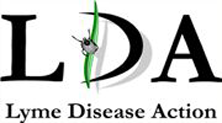A paper published earlier this year has already become widely quoted and so it is worth a brief comment to put this in perspective.
Lyme disease in a British referral clinic
Cottle, Mekonnen, Beadsworth, Miller & Beeching.
QJM: Monthly Journal of the Association of Physicians June 2012
The paper describes the patterns of referral, investigation, diagnosis and treatment of patients who had been referred to the infectious disease unit in Liverpool with suspected Lyme disease over the 5 years 2006-2010.
The findings were that of the 115 patients referred for suspected Lyme disease:
- 27 (23%) were diagnosed with Lyme disease
- 38 (33%) were diagnosed with chronic fatigue syndrome (CFS)
- 3 (11%) were diagnosed with other medical conditions
- 38 (33%) were given no diagnosis at all.
Among the 38 patients the clinic diagnosed with CFS instead, 17 (45%) had been misdiagnosed as having LD by non-NHS practitioners.
The authors’ conclusion was
A minority of referred patients had LD, while a third had CFS. LD is over-diagnosed by non-specialists, reflecting the complexities of clinical and/or laboratory diagnosis. Patients with CFS were susceptible to misdiagnosis in non-NHS settings, reinforcing concerns about missed opportunities for appropriate treatment for this group and about the use of inappropriate diagnostic modalities and anti-microbials in non-NHS settings.
What immediately struck LDA was the small number of patients that this clinic sees. The 5 years 2006-2010 saw about 4,150 laboratory confirmed Lyme disease cases in England and Wales; the Liverpool clinic saw 16 of these plus a further 11 who had negative serology but an erythema migrans. So this major infectious diseases clinic in the NW of England saw less than half a percent of the Lyme disease cases that occurred in the UK in that period.
It is clear that the expertise in diagnosing Lyme disease does not lie with infectious diseases consultants, and it also seems that they rely heavily on serology. Unfortunately, the remaining 4,130 Lyme disease patients in those years would have been spread very thinly over the country’s GPs, so they are not going to build up much experience either.
Everyone acknowledges that Lyme disease is difficult to diagnose when serology is negative but it is worth pointing out that Lyme disease is not the only disease without a definitive test and subject to misdiagnosis.
Two recent papers have assessed the accuracy of CFS diagnosis made by referrers to specialist CFS clinics. At St Bartholomew’s Hospital London researchers found that half the patients had been misdiagnosed. The Newcastle specialist clinic found 40% had been misdiagnosed, and of these 47% had fatigue associated with a chronic disease.
We expect 21st century diagnostics to come up with answers, but we are not there yet.

 Printer Friendly
Printer Friendly